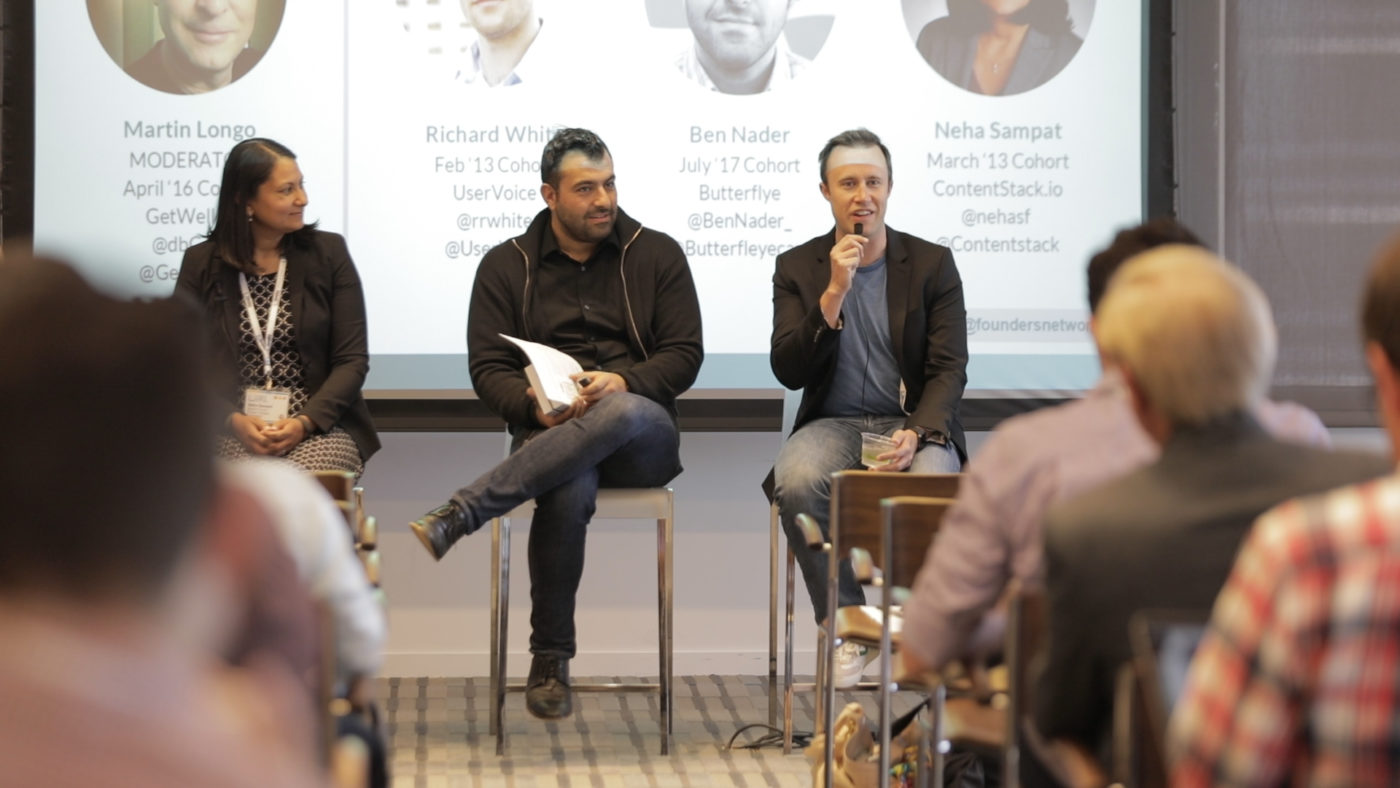
The following is a guest post from fnBlog Contributor Hugo Bernardo, founder of Easy Vino, a smart recommendation engine for the casual wine drinker.
Hugo’s thoughtful post answers two questions: “Should you have a co-founder? And once you find a co-founder, how do you know he/she is the one?” Hugo blogs at Immigrant Entrepreneur and the highly entertaining Easy Vino Blog. Full bio below.
What is co-founder dating?
A lot has been said recently about how you should go about finding a co-founder, and more specifically, a technical co-founder for your startup idea. I think the idea of “earning a co-founder” is good, as it is the very structured process of co-founder dating that Elizabeth Knopf explains. However, 2 questions remain unanswered after I read this: Should you have a co-founder? And once you find a co-founder, how do you know he/she is the one?
These questions are way more important than the whole cofounder dating problem because they’re more fundamental and have a long-term impact on your early-stage startup. The thing with co-foundership is that it’s such a personal decision that you can find a million different opinions and all of them can be right.
In most cases, people are driven by their personal experience and think that what worked with them should work with you. I’m not sure if that’s always the case, but I’ll tell you what I learned from my personal experience, and you decide whether that’s valuable or not.
The first question to ask yourself is: do I need to have a co-founder? Assess if you are doing it for the right reasons before you embark on the journey of meeting people that your founder’s network offers, and invest all the time that it takes to find a founder.
There are 4 reasons why you might be considering finding a co-founder
-
In the short term, founders globally find it cheaper to have a co-founder than to hire someone to do the job. I hear way too many times people saying they’re looking for a co-founder because they don’t have the money to pay someone to do the job, the job being whatever: coding, designing, selling. If this is the only reason why you want a co-founder, it’s the wrong one. I would advise you to read the remaining 3 and think again. It can’t just be about the money.
-
The startup emotional roller-coaster is easier to get through when you have someone by your side that can reassure you about the soundness of your business and the possibilities of success. Let’s be honest, it’s great having someone telling you “this is going to work out” when you start questioning the assumptions, and family and friends don’t do the trick. A mentor can do this, or someone else who you respect and know will always be honest with you.
-
You want a balanced team with people equally incentivized to see the company succeed. Most likely, you don’t have the skill set needed to build a successful startup. Dave McClure says the perfect team needs a hacker, a hustler, and a designer.
I think people can combine some of the needed skills or even all three of them, in which case the problem will probably be time. Will you be able to be all three of them efficiently? And if not, do you want a co-founder or do you want to hire someone to fill-in? That will depend on how crucial you think that role is.
If the role that you are trying to fill in is key, and you want someone as incentivized as you, then you need a co-founder. If not, or you think it’s easily replaceable, then maybe you don’t need one.
-
You want someone at your level that can challenge you and help you take the company to a whole new level. To me, this is the most compelling argument to have a co-founder. When you hire a person, it doesn’t matter what your style is and what you tell them, they’ll always be an employee.
A co-founder will challenge your premises and that will help you shape your idea and build a more solid business. Of course, you have to make sure your co-founder can do that. You can find advisors and mentors that can help you with this process, but it’s not going to be the same.
Startup advisors and mentors don’t have the time to think about your business in detail and won’t be there for all the important decisions you’ll have to make. You might be able to do it by yourself, there are plenty of examples of successful solo entrepreneurs, but please do think about this aspect before making a final decision.
How do you know your business partner is the one?
So you went through the whole co-founder dating process, and you think you found the right person. But how can you be sure? The right answer is you can never be sure, but there are a few questions you can talk about to dramatically increase the probability of finding your ideal co-founder.
Some people will tell you one way to solve this is to give a minority share to your co-founder. That way, you can always pull the plug and go by yourself or with someone else. You can read Mark Suster’s opinion as he argues in favor of that solution.
I’m not dogmatic about this, but I do think that when you “hire” a co-founder, you might create an inequitable partnership where it’s harder to challenge your assumptions because it’s “your” business. Again, to me, this is the most important aspect of having a co-founder, so I’d be very careful to make sure you have a true partnership.
Make sure you speak about this with your potential co-founder before you seal your agreement:
-
Equity split. This is an obvious one, but for some reason, a lot of people postpone this conversation. As I said, I’m not dogmatic about the split, but make sure you discuss this early in the process and everyone is comfortable with the final number.
-
Vesting. Things change, shit happens, and sometimes people decide to move on. It doesn’t matter why it happens, as long as you make sure that you have a vesting calendar in place. The last thing you want is to have people leaving the company after 6 months with a huge chunk of equity, which will leave you looking for a co-founder with no equity in hand. Make sure everyone is on the same page.
-
Expectations, goals, exit, pull the plug. If you read a lot of Mashable and Tech Crunch you’ll hear about companies being sold for dozens of millions or even hundreds of millions. It’s easy to be dragged into the perception that you should never accept any less than that.
The truth is, most companies fail, and a lot of the successful ones either survive with meager revenues or get acquired for a small sum. So it’s important to manage expectations and set personal goals: When are you going to pull the plug? What is an acceptable exit, how long are you willing to stick around?
These are awkward discussions to have early on, but you better have them before you start, than having to face those issues later:
- Salary. Are you going to have a salary? If so, how much and when? What triggers a salary bump?
This is usually an easier question to have, but an important one.
- Pivot or not to pivot. This is another awkward conversation, but you should talk about how willing you are to pivot and what could trigger that.
Conclusion
I’m sure you should be talking of other issues as your startup grows, but from my experience, these are the ones that can cause serious trouble if you don’t talk about them early on. With all this in mind, you’re ready for co-founder dating.






